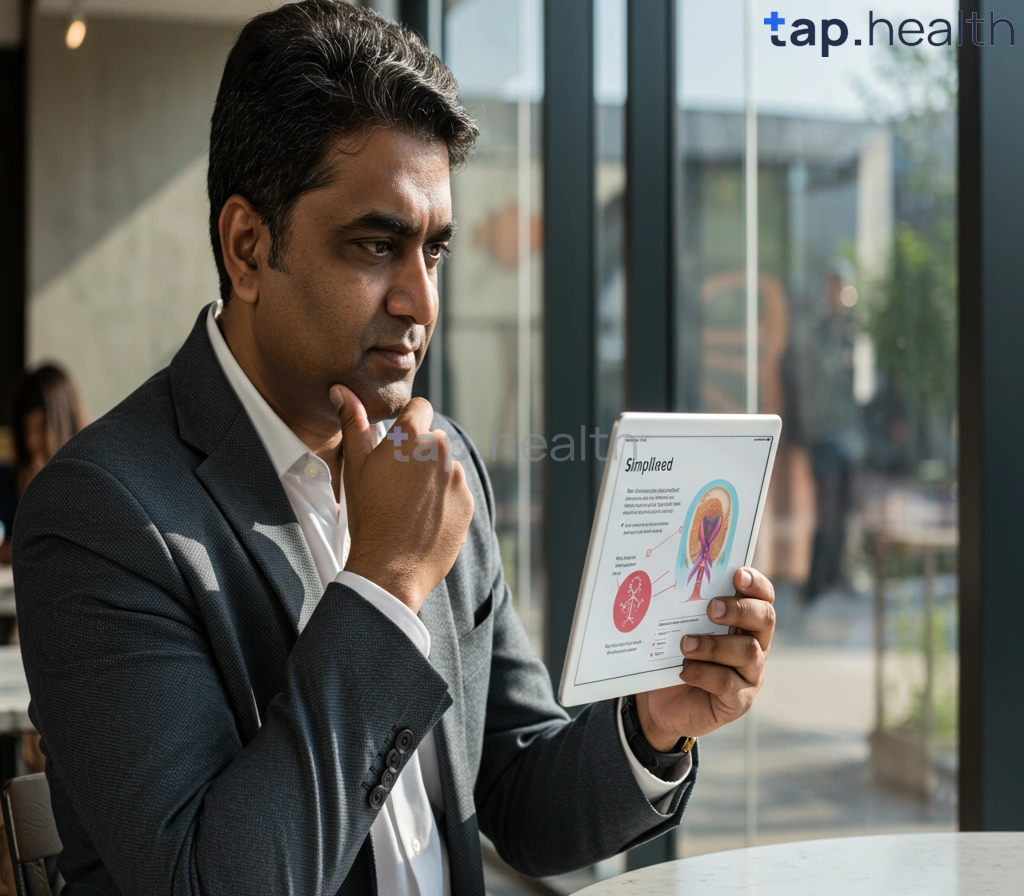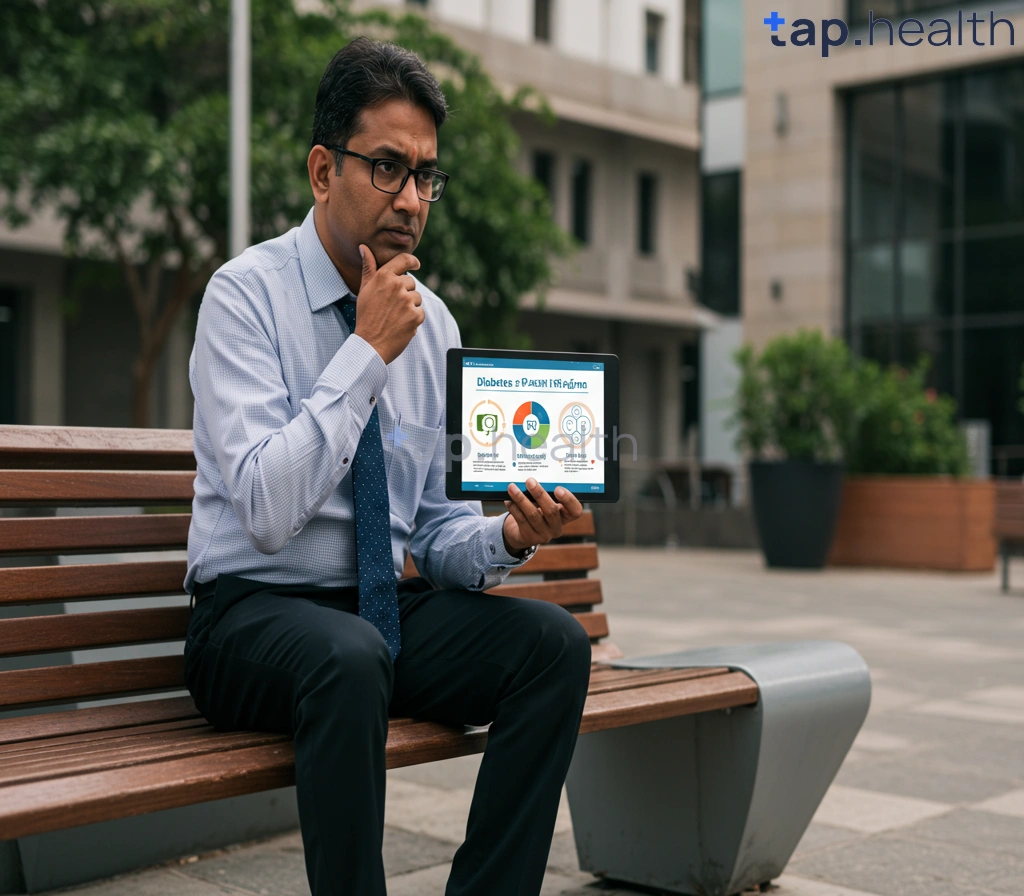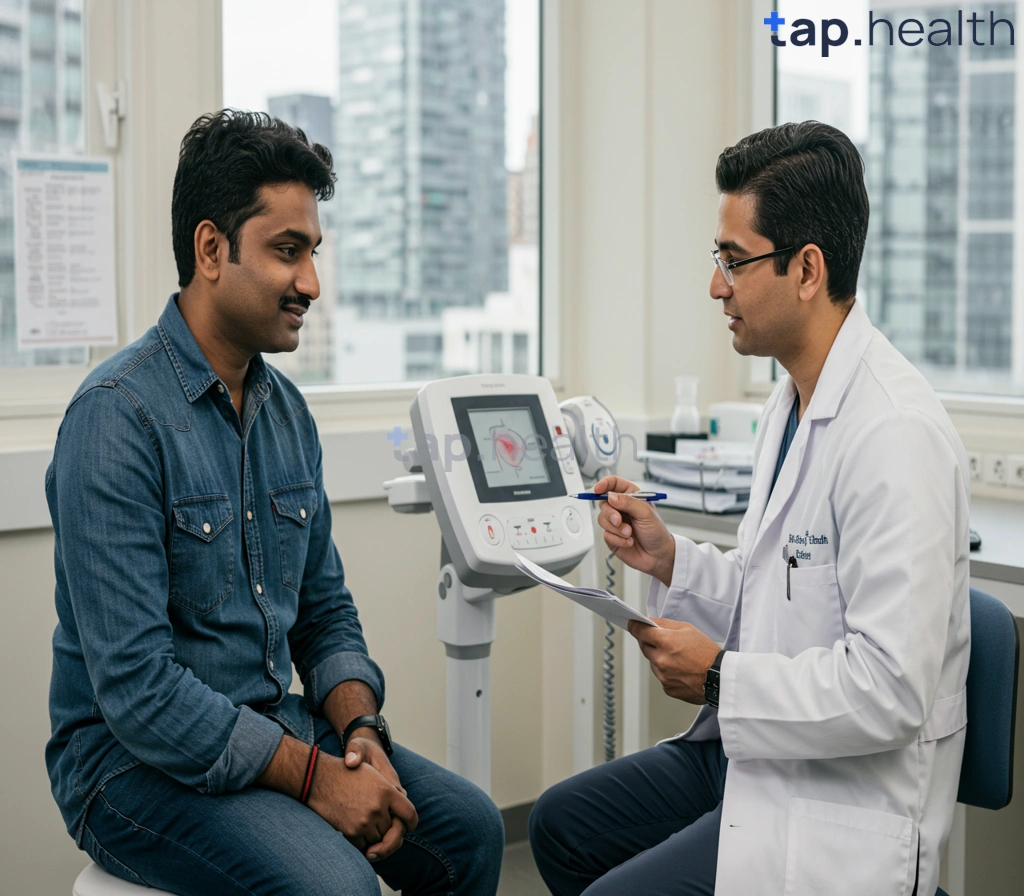Table of Contents
- Living with Diabetes and a Rare Tumor: A Guide
- Rare Tumors and Diabetes: Challenges and Solutions
- How Diabetes Impacts Rare Tumor Treatment and Management
- Navigating Life with Diabetes and a Rare Tumor Diagnosis
- Diabetes Management Strategies for Patients with Rare Tumors
- Frequently Asked Questions
- References
Living with diabetes presents unique challenges, but what happens when you face an added complication like a rare tumor? This blog post explores the complexities of Living with Diabetes: Navigating a Rare Tumor’s Impact. We’ll delve into the often-overlooked intersection of these two conditions, discussing how a rare tumor diagnosis can affect diabetes management and overall well-being. From treatment strategies to emotional support, we’ll offer insights and resources to help you navigate this challenging journey. Let’s explore how you can effectively manage both conditions and maintain a fulfilling life.
Living with Diabetes and a Rare Tumor: A Guide
Living with diabetes presents significant challenges, compounded further by the added burden of a rare tumor. The impact on daily life can be profound, especially considering that globally, a staggering 50% of diabetes cases remain undiagnosed, according to the International Diabetes Federation. This highlights the crucial need for increased awareness and proactive healthcare management, particularly within Indian and tropical countries where diabetes prevalence is high.
Understanding the Interplay
Diabetes, characterized by high blood sugar levels, impacts various bodily functions. When coupled with a rare tumor, the complexity increases dramatically. Treatment for the tumor, including surgery, chemotherapy, or radiotherapy, can further stress the body, potentially impacting blood sugar control and increasing the risk of complications. Managing both conditions effectively requires meticulous planning and close collaboration with a healthcare team. This is especially vital in regions with limited access to specialized healthcare.
Navigating Treatment and Daily Life
In Indian and tropical countries, access to specialized oncology and diabetes care can be geographically limited. Therefore, proactive management is crucial. This includes regular monitoring of blood glucose levels, adherence to prescribed medications, and a balanced diet adapted to the demands of both conditions. Regular consultations with both oncologists and diabetologists are essential for personalized treatment plans. Support groups and community resources can provide invaluable emotional and practical assistance, particularly in navigating the challenges specific to these regions. The challenges of managing diabetes can also increase with age, as highlighted in Managing Diabetes as You Age: Challenges and Solutions.
Taking Control
Living with diabetes and a rare tumor requires a holistic approach, encompassing medical care, lifestyle modifications, and emotional well-being. Seeking support from healthcare professionals and support networks is critical for successful management. In Indian and tropical countries, exploring local resources and support groups specifically tailored to these dual challenges is vital. Remember, you are not alone, and effective management is achievable with the right support and proactive care. For those who travel frequently, Traveling with Diabetes: Essential Tips for a Safe & Healthy Journey offers valuable advice on maintaining blood sugar control while on the go.
Rare Tumors and Diabetes: Challenges and Solutions
The Double Burden in Tropical and Indian Countries
The coexistence of diabetes and rare tumors presents unique challenges, particularly in low- and middle-income countries. Over 75% of people with diabetes live in these regions, according to the IDF Diabetes Atlas, placing a significant strain on already limited healthcare resources. This means access to specialized diagnosis and treatment for rare tumors can be severely restricted, leading to poorer outcomes for individuals already battling diabetes. The added financial burden of managing both conditions can also be devastating for families in these areas.
Navigating the Complexities
Managing diabetes effectively is crucial when dealing with a rare tumor. Blood sugar control can impact the body’s response to treatment, and vice versa. Regular monitoring of blood glucose levels is paramount, along with adherence to prescribed medication and lifestyle adjustments. However, access to consistent diabetes care and specialized oncology services can be a major hurdle in many Indian and tropical countries. This highlights the urgent need for improved healthcare infrastructure and increased awareness among healthcare providers about the unique needs of this patient population. Understanding the potential link between diabetes and the development of certain cancers, as explored in the article Does Diabetes Cause Cancer?, is also crucial for preventative measures.
Practical Steps and Regional Considerations
Early detection is key. Promoting regular health check-ups and raising awareness about the symptoms of both diabetes and rare tumors is crucial. Advocating for increased government funding for diabetes and cancer care in these regions is essential. Furthermore, supporting initiatives that improve access to affordable medication and healthcare services will be vital in improving the lives of those grappling with this dual diagnosis. Strong community support networks can offer invaluable emotional and practical assistance. By focusing on accessible, culturally-sensitive solutions, and by implementing strategies to Boosting Immunity While Managing Diabetes, we can significantly improve the outcomes for individuals living with both diabetes and rare tumors in Indian and tropical countries.
How Diabetes Impacts Rare Tumor Treatment and Management
Diabetes, a prevalent condition globally, significantly affects individuals across all age groups, particularly those between 20 and 64 years old (61% according to the International Diabetes Federation). This large demographic overlap presents unique challenges when considering the impact of diabetes on rare tumor treatment and management, especially within the context of Indian and tropical countries. The added complexities of heat, humidity, and potentially limited access to specialized care further complicate matters.
Challenges in Diagnosis and Treatment
Managing diabetes alongside a rare tumor is complex. Existing diabetic complications, such as compromised immunity and impaired wound healing, can significantly impact the effectiveness of cancer therapies like surgery, radiation, and chemotherapy. Furthermore, certain anti-cancer medications may also affect blood sugar levels, requiring careful monitoring and adjustments to diabetes management plans. The need for frequent blood tests and medical appointments can place a considerable burden on individuals already struggling with diabetes management. The impact of this constant management can even extend to other areas of health, as seen in the connection between diabetes and mental health, as detailed in The Impact of Diabetes on Mental Health.
Regional Considerations in India and Tropical Countries
In many Indian and tropical countries, access to specialized cancer care and advanced diabetes management may be limited. This disparity in access to resources can exacerbate the challenges faced by individuals with both conditions. Heat and humidity can also worsen diabetic complications and impact treatment tolerance. Furthermore, cultural beliefs and traditional practices may influence treatment adherence, highlighting the importance of culturally sensitive care and support systems. Even seemingly unrelated symptoms, like hair loss, can be impacted; understanding the connection between diabetes and hair loss can be beneficial for holistic patient care, as explained in Does Diabetes Cause Hair Loss? Understand the Connection.
Improving Outcomes
Effective management necessitates close collaboration between oncologists and diabetologists. A holistic approach focusing on individualized treatment plans, regular monitoring of both conditions, and culturally sensitive education is crucial. Supporting patients with diabetes managing rare tumors requires a multidisciplinary team, patient empowerment through education, and readily accessible healthcare resources tailored to the specific needs of these populations. Open communication and a patient-centered approach are vital for improving outcomes in this vulnerable population.
Navigating Life with Diabetes and a Rare Tumor Diagnosis
Living with diabetes presents significant challenges, and the added complexity of a rare tumor diagnosis can feel overwhelming. The sheer scale of the diabetes epidemic is staggering; the World Health Organization reports a rise from 200 million people living with diabetes in 1990 to a staggering 830 million in 2022. This highlights the urgent need for comprehensive support and understanding for those facing this dual burden, especially within the context of Indian and tropical countries.
Understanding the Unique Challenges
The interplay between diabetes and a rare tumor necessitates a highly individualized approach to management. Many tropical climates, prevalent in India, present additional challenges such as increased risk of infections, limited access to specialized care, and socioeconomic factors that can impact treatment adherence. Managing blood sugar levels effectively while undergoing cancer treatment is crucial, requiring close monitoring and potentially adjusted medication regimens. Nutritional needs become even more critical, balancing the demands of both conditions. Understanding the implications of diabetes can be crucial in managing this complex situation. For instance, Is Diabetes Considered a Disability? Understanding the Implications can provide further insight.
Seeking Support and Resources
Navigating this complex situation requires strong support systems. Connecting with specialized oncology and diabetes care teams, ideally with experience in managing rare tumors, is paramount. In India and other tropical regions, leveraging community resources and support groups can provide invaluable emotional and practical assistance. Actively participating in your treatment plan and advocating for your needs is crucial. Don’t hesitate to seek second opinions and explore all available treatment options. It’s also important to dispel any myths surrounding diabetes transmission. For accurate information, refer to Can Diabetes Be Transmitted? Understanding the Facts and Myths.
Taking Control of Your Health
Living with diabetes and a rare tumor requires proactive management. This includes maintaining open communication with your medical team, adhering to prescribed medications, focusing on a healthy diet tailored to your specific needs, and engaging in appropriate physical activity as advised by your doctors. Remember, you are not alone. By seeking support, actively participating in your care, and focusing on a holistic approach to well-being, you can navigate this challenging journey with strength and resilience. Connect with local support groups and healthcare professionals for tailored guidance specific to your region.
Diabetes Management Strategies for Patients with Rare Tumors
Living with diabetes presents significant challenges, especially when complicated by the presence of a rare tumor. Effective management requires a multifaceted approach tailored to the individual’s needs, considering both the diabetes and the specific tumor type. It’s crucial to remember that up to 80% of Type 2 diabetes cases can be delayed or prevented through lifestyle changes. This highlights the importance of proactive management, particularly in high-risk populations prevalent in Indian and tropical countries. Lifestyle changes, such as adopting a balanced diet and regular exercise, are paramount.
Dietary Considerations
A well-planned diet is fundamental. This involves focusing on whole grains, lean proteins, fruits, and vegetables, while limiting processed foods, sugary drinks, and unhealthy fats. Individuals in India and other tropical regions may need to adapt their diets to account for regional food availability and cultural preferences. Consulting a registered dietitian familiar with managing diabetes and the specific dietary needs related to the rare tumor is crucial. They can help create a personalized meal plan that addresses both conditions effectively. For more detailed guidance on dietary choices, you might find our article on Safe and Effective Dietary Supplements for Diabetes Care helpful.
Physical Activity & Lifestyle Modifications
Regular physical activity is vital for both diabetes and overall health. Incorporating moderate-intensity exercise, like brisk walking or yoga, into your daily routine can significantly improve blood sugar control. However, the intensity and type of exercise should be tailored to the individual’s fitness level and the limitations imposed by the tumor. Prioritizing stress management techniques like meditation or deep breathing exercises is also beneficial, given the emotional and physical demands of managing both diabetes and a rare tumor. For additional tips on managing your diabetes effectively, check out our blog on 10 Proven Tips for Effective Diabetes Management.
Seeking Expert Care
Regular consultations with an endocrinologist, oncologist, and other healthcare professionals are paramount. A multidisciplinary approach ensures coordinated care, allowing for prompt adjustments to diabetes management based on tumor progression and treatment. In India and tropical countries, access to specialized care might vary; therefore, proactive engagement with healthcare providers is crucial for optimal outcomes. Open communication with your healthcare team is essential for effective management and improving your quality of life.
Frequently Asked Questions on Diabetes & Rare Tumors | Impact and Management
Q1. What are the main challenges in managing diabetes alongside a rare tumor?
The main challenges include the complexities of managing two serious conditions simultaneously, limited access to specialized healthcare, and the need for a holistic approach involving meticulous blood glucose monitoring, medication adherence, and a balanced diet.
Q2. What is the recommended approach to managing both diabetes and a rare tumor?
Effective management requires a holistic approach encompassing close monitoring of blood glucose levels, strict adherence to prescribed medications, and a personalized diet plan. Collaboration with both oncologists and diabetologists is crucial for developing an effective treatment strategy.
Q3. What kind of support is available for individuals facing this dual diagnosis?
Support groups and community resources offer invaluable emotional and practical support. These resources can provide guidance, coping strategies, and a sense of community for those navigating the complexities of living with both diabetes and a rare tumor.
Q4. How important is early detection and proactive healthcare in this context?
Early detection of both conditions is crucial. Proactive healthcare management, including regular check-ups and adherence to treatment plans, significantly improves outcomes and quality of life. Culturally sensitive care is also essential.
Q5. What role do socioeconomic factors and healthcare access play in managing these conditions?
Socioeconomic factors and access to healthcare significantly impact the ability to manage both diabetes and a rare tumor effectively. Addressing these barriers, especially in regions with limited resources, is critical for improving long-term outcomes.
References
- A Practical Guide to Integrated Type 2 Diabetes Care: https://www.hse.ie/eng/services/list/2/primarycare/east-coast-diabetes-service/management-of-type-2-diabetes/diabetes-and-pregnancy/icgp-guide-to-integrated-type-2.pdf
- What is Diabetes: https://www.medschool.lsuhsc.edu/genetics/docs/DIABETES.pdf




